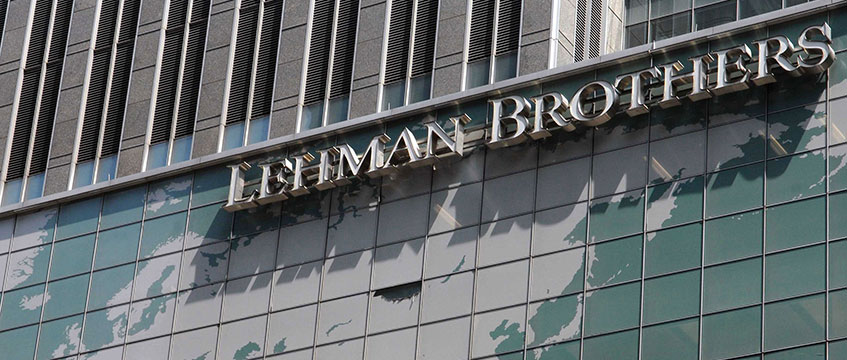THE LEHMAN CHRONICLES: In the latest in our series of recollections from the industry’s most influential players looking back at the collapse of Lehman Brothers and the lessons that can be learnt from it, Brendan Flood, the former chief executive of Modus Ventures – the retail developer that collapsed into administration in May 2009 – remembers the “utter shock” he felt as news broke of Lehman’s collapse.
Looking back
Did you sense there was a crash coming?
The early sign of a crash coming for us was the changing of the guard within the banking market. The good guys were retired off and politely pushed out.
They were replaced by a ruthless bunch whose personal networks were principally the big four accountants and their insolvency teams. The banks were in a mess and screened the truth from all of their larger customers to avoid responsibility.
What are your abiding memories of the time around the collapse of Lehman itself?
We were in discussions with Lehman to finance a pipeline of nine shopping centre developments. Three weeks before its administration, we had undertaken a UK road trip of our key schemes with the Lehman board.
I watched the news of the collapse in utter shock as it represented the potential impending collapse of any of our banks. We worked actively with 16 banks with combined facilities of £1.1bn at that time.
How has it shaped things for you since?

Undoubtedly, the credit crunch experience resulted in many of us having to completely start again. We had a fantastic team at Modus. Most of the leadership team have continued to be successful in the property market.
I now chair the Real Estate Group in Manchester and we are active in residential and mixed-use developments in both Manchester and London. We have a trading business model, so our debt funding is modest and shorter term.
Looking forward
What do you think is the likelihood of another crash in the short to medium term (and why)?
We all learnt a lot about banking in 2008-12 and I’d hope that lessons learnt there have reduced the risk of another banking collapse. A slowdown could occur at anytime.
I watched the news of the collapse in utter shock as it represented the potential impending collapse of any of our banks.
Business needs an occasional slowdown or pause to re-evaluate asset performance, so I expect a less active market in 2019 but I see no signs of a crash.
What things should investors look out for that might signal another crash?
Many of the UK institutions and councils have created hybrid banking models, which are still in their infancy. My sense is that they lack experience and the relevant skills within the asset classes they are invested, so this is the most significant risk to the property market.
Any material distress affecting this group of funders could prove challenging.
What sector or geography do you think looks most susceptible to a downturn?
Since 2008, most of the cash invested in new development has favoured the growth of our cities. The provincial towns have lost economic growth and young people everywhere are heading to the major cities for education, opportunity and lifestyle.
Inevitably, many of our provincial towns are fighting to retain existing and new businesses. The high street, its leisure provision and commercial offices in such towns will suffer reduced demand and a significant drop in value.
We all learnt a lot about banking in 2008-12 and I’d hope that lessons learnt there have reduced the risk of another banking collapse.
This could be perceived as widespread over the next five years and only the best led towns with pro-active councils will manage this transition.
Good public transport links to their neighbouring cities offer an opportunity to collectively support this trend while enabling talented young people to live in affordable new homes outside of our cities. This will lead to new smaller community investment and wider medium-term success.












